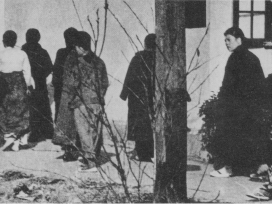Confessions of a converted dissident
Essay for the Erasmus Prize 2001
For us, Europeans behind the Iron Curtain, the idea of Europe was simply a rejection of the Communist project, writes Adam Michnik: freedom instead of servitude, open borders and legality instead of the Berlin Wall and preventive censorship. This vision obviously contained an idealisation of both the practice of the European Union and of its theoretical foundations.
